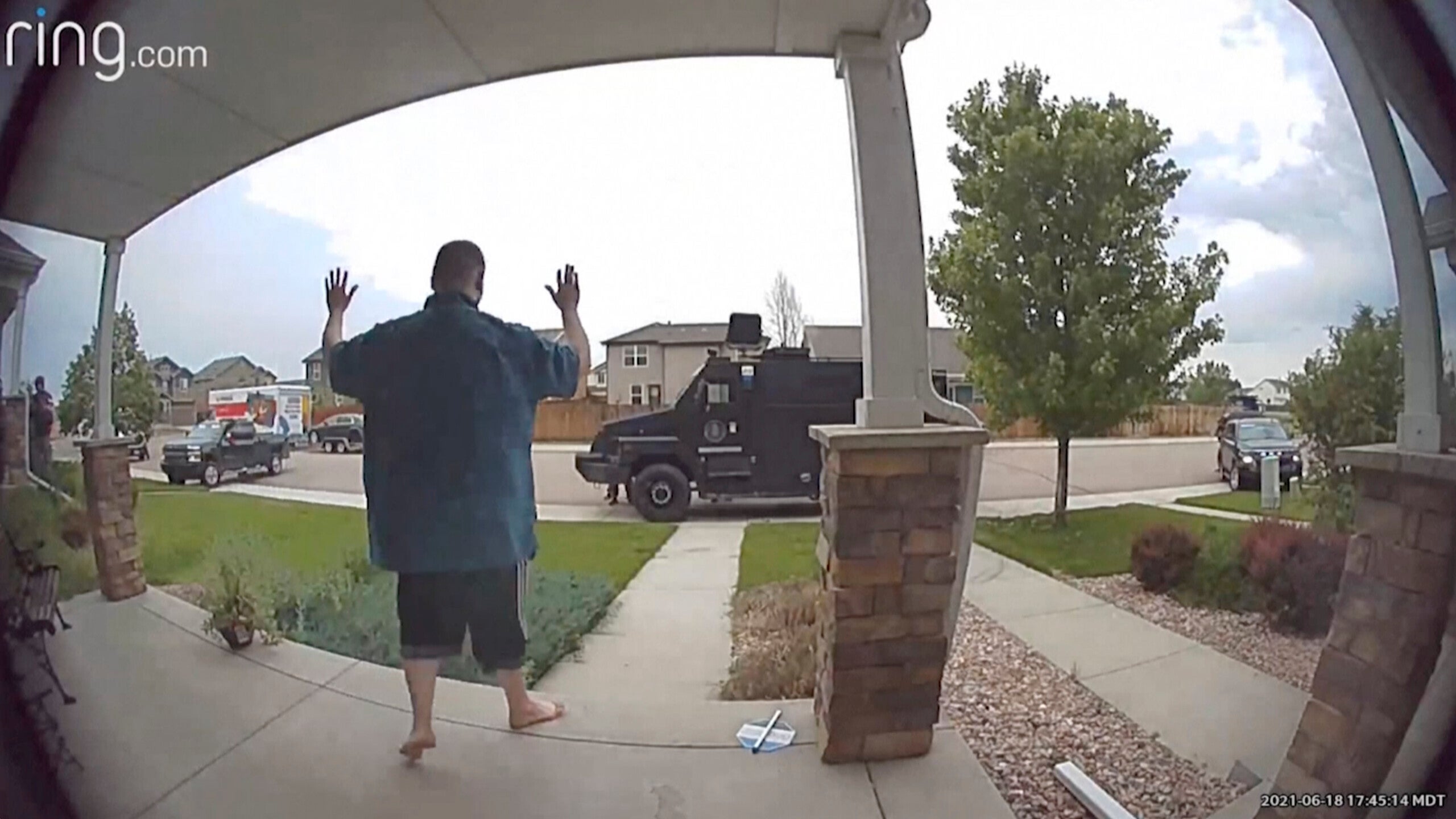FBI got tip about shooting suspect a day before 2021 arrest
DENVER (AP) — Authorities said the person who would later kill five at a Colorado gay nightclub was on the FBI’s radar a day before being arrested for threatening to kill family members but agents closed out the case just weeks later.
The disclosure by the FBI to The Associated Press creates a new timeline for when law enforcement was first alerted to Anderson Lee Aldrich as a potential danger. Previously it was thought Aldrich only became known to authorities after making the threat on June 18, 2021.
Aldrich’s grandparents ran from their Colorado Springs home last year and called 911 saying Aldrich was building a bomb in the basement and had threatened to kill them. Details of the case remain sealed, but an arrest affidavit verified by the AP detailed how Aldrich, who is nonbinary and uses they/them pronouns, was upset the grandparents were moving to Florida because it would get in the way of Aldrich’s plans to conduct a mass shooting and bombing.
As part of the FBI’s probe, the agency said it coordinated with the El Paso County Sheriff’s Office, which had responded to the June 18, 2021, call from Aldrich’s grandparents and arrested Aldrich on felony menacing and kidnapping charges. But the FBI closed its assessment of Aldrich about a month after getting the tip.
“With state charges pending, the FBI closed its assessment on July 15, 2021,” the FBI said.
Those charges were later dropped for unknown reasons. Under Colorado law, cases that are dismissed by either prosecutors or a judge are automatically sealed to prevent people from having their lives ruined if they do not end up being prosecuted. Authorities have cited the law in refusing to answer questions about the case but a coalition of media organizations, including the AP, has asked the court to unseal the records.
A spokesperson for the sheriff’s office, Sgt. Jason Garrett, declined to comment on the FBI’s statement or on whether his agency had any tips about Aldrich before Aldrich’s 2021 arrest, citing the sealing law.
The information conveyed to the FBI, which has not been previously reported, marks the earliest known instance of law enforcement officials being warned about Aldrich, and the shooting is the latest attack to raise questions about whether people who once caught the attention of law enforcement should have remained on the FBI’s radar.
An FBI assessment is the lowest level, least intrusive and most elementary stage of an FBI inquiry. Such assessments are routinely opened after agents receive a tip and investigators routinely face a challenge of sifting through which of the tens of thousands of tips received every year could yield a viable threat.
There have been several high-profile examples of the FBI having received information about a gunman before a mass shooting. A month before Nikolas Cruz killed 17 people at a Florida high school, the bureau received a warning that he had been talking about committing a mass shooting. A man who massacred 49 people at an Orlando nightclub in 2016 and another who set off bombs in the streets of New York City the same year had each been looked at by federal agents but officials later determined they did not warrant continued law enforcement scrutiny.
FBI guidelines meant to balance national security with civil liberties protections impose restrictions on the steps agents may take during the assessment phase. Agents, for instance, may analyze information from government databases and open-source internet searches, and can conduct interviews during an assessment. But they cannot turn to more intrusive techniques, such as requesting a wiretap or internet communications, without higher levels of approval and a more solid basis to suspect a crime.
More than 10,000 assessments are opened each year. Many are closed within days or weeks when the FBI concludes there’s no criminal or national security threat, or basis for continued scrutiny. The system is meant to ensure that a person who has not broken the law does not remain under perpetual scrutiny on a mere hunch — and that the FBI can reserve its scarce resources for true threats.



